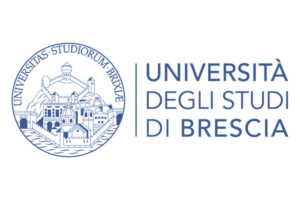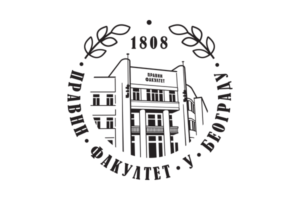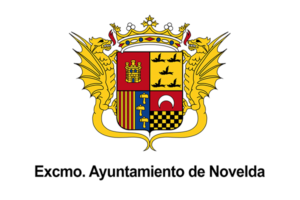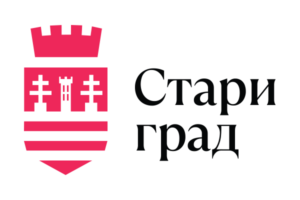Kadir Has University (KHAS) maintains a strong commitment to gender+ equality and officially adopted its gender+ equality plan in 2021. Since 2011, KHAS has retained its Women and Family Studies Research Center which has enabled KHAS to build its reputation in terms of gender+ equality on several fronts. The University has also instituted a policy and prevention unit to fight gender+-based harassment, sexual harassment, and sexual assault.
University of Alicante (UA) possesses a far-reaching gender+ equality plan which embraces the pillars of career advancement for women, both academic and administrative staff, greater participation of women in decision making, encourages work life balance but also encourages the inclusion of the sex/gender+ dimension in research and calls for gender+ equality in sports and physical activity. The experience of UA in creating this model GEP will serve as a vital resource for training and mentoring the widening country partners in ensuring their own GEPs are inclusive and effective. In a recognition of the intersectional nature of women’s lives, UA retains a harassment policy that includes sexual orientation and gender+ identity as a basis for harassment.
Università degli Studi di Brescia (UNIBS) brings extensive experience in gender+ equality, GEPs and most importantly gender+ audit and budgeting. They participated in the SAGE project and have implemented a gender+ equality plan and a gender+. In addition, they possess a number of important institutional features for gender+ equality – an internal committee on equality (CUG), which works to make the University free of all forms of discrimination. This Committee has also recently set up a first of its kind listening center on the well-being at the workplace. UNIBS introduced the position of Consigliera di Fiducia who is responsible for prosecuting behaviours and incidents including direct or indirect forms of discrimination, sexual harassment, physical or psychological violence and mobbing. Moreover, in November 2019, UNIBS opened the “LOG”, a laboratory/observatory on gender+ studies aimed at removing barriers for women in scientific and academic careers, enhancing gender+ equality in decision-making organisms, developing strategies to address gender+ prejudices and stereotypes, and highlighting the advantages of gender+ equality in research activities and everyday life.
Univerzitet-Sarajevska Skola Za Nauku i Tehnologiju Pu (SSST) In 2021,the SSST entered a consortium of 17 Western Balkan universities, led by the TPO Foundation Bosnia-Herzegovina, committed to introduce gender+ mainstreaming to the university structure and functioning, particularly through the Gender+ Equality Plan. SSST itself has already engaged researchers in compiling data in terms of institution’s gender+ stratification, and the SSST Gender Equality Plan should be published and available by April 2022. In October 2021, by the Senate’s decision, the SSST has formed an Office for Gender Equality, led by Professor Jasminka Hasić-Telalović. The Office will coordinate all gender+ mainstreaming-related activities with academic staff and students alike and will be responsible for engaging relevant management representatives in creating and implementing specific policies outlined by the Gender Equality Plan. Professor Hasić-Telalović is leading the team for SSST and brings her growing expertise and experience to the project. SSST were recently awarded funding under the WIDERA program for its project Equality Diversity and Inclusion for Research Enhancement in Bosnia Herzegovina (EDIRE).
Univerzitet u Beogradu – Pravni Fakultet (UBELGRADE) April 2019 saw the Senate of the UBELGRADE adopt a Gender Equality Plan (GEP) with priority areas identified from of the first Gender Equality Audit, a self-assessment conducted as a part of the TARGET project (Grant agreement ID: 741672) which initiated institutional change in seven gender equality innovating institutions (GEIIs) in the Mediterranean basin. In 2021, the Faculty of Law at UBELGRADE adopted its own Plan for Gender Equality with main goal of promoting gender equality at all levels, including consistent application of principles, primary goals, and central measures in this area. Furthermore, in accordance with the Rulebook on Prevention andProtection against Sexual Harassment at the University of Belgrade, the Faculty of Law has appointed a Commissioner for Equality. To further promote gender equality, the Faculty of Law has also participated in several projects including the Erasmus + funded project New Quality in Education for Gender Equality – Strategic Partnership for developing a Master’s Study Program LAW AND GENDER (LAWGEM).
Municipality of Brescia (BRESCIA), Italy, comprises roughly 200,000 inhabitants. Brescia has nearly 1600 employees, the majority of whom are women. However, when one examines the executive rank the numbers of women drop decidedly. The municipality has a committee for guaranteeing equal opportunities which proposes, and monitors actions related to equal opportunities, the enhancement of well-being in the workplace and against gender discrimination. The municipality also has a positive action plan which includes gender+ equality measures. The Budget-It team from BRESCIA consists of career civil servants with expertise in social planning and services, education and projects on gender-based violence. Moreover, several team members work directly with the committee which guarantees equal opportunities.
Ayuntamiento de Novelda (NOVEL), Spain, with an estimated population of 27,135 inhabitants. NOVEL is made up of 21 councillors across 6 municipal groups including the mayor’s office. NOVEL consists of 6 services which have 18 departments between then consisting of 287 staff members of which 46% are women. NOVEL has an Department for Equality in the Area of Social Welfare (Concejalia de Igualdad en el Area de Bienestar Social) which has the role of ensuring the inclusion of equality principles in public policies. It also makes clear NOVEL’s commitment to equality as a transversal principle. This department takes the lead in the development, implementation and evaluation of municipal equality plans; coordination of equality actions that are developed from the different departments and areas of the municipal organization and provides technical support to the municipal departments and areas to develop equality actions.
Maltepe Municipality (MALTEPE), Turkey, is part of the greater metropolitan of Istanbul and has roughly 525,000 inhabitants. The municipality itself has nearly 2000 civil servants in its employ. MALTEPE has a Social Policy and Equality Unit which is charged with creating and implementing equality initiatives including those on gender+ equality. The Unit also has the responsibility to liaise with residents of the municipality and civil society organisations to ensure they are also included in the decision making of the municipality. The Social and Equality Unit and its staff have a wide range of experience in working with and providing education and training to groups such as youth, elderly, women and refugees. Such is MALTEPE desire to participant and implement the learnings from this project, they are assigning staff from Social and Equality Unit as in-kind contribution to the project. The Unit also has extensive project experience ranging from the Raoul Wallenberg Institute for Human Rights to the Istanbul Development Agency.
The City Municipality of Stari grad (STARI) represents the center and the heart of Belgrade, the capital of the Republic of Serbia. It represents the cultural-historical, architectural and economic center of Belgrade, and best reflects the millennial history of the creation, growth and development of Belgrade. The current municipality was formed and took its current name in 1957 by merging the Municipalities of Stari Grad, Skadarlija and the works of Terazije. According to the latest data from 2019, the total number of inhabitants in the Municipality of Stari grad is 44,613, with a population density of 8923 per km2. STARI has 85 employees, of which 61 are women and a Council for Gender Equality has been established and is actively functioning.










